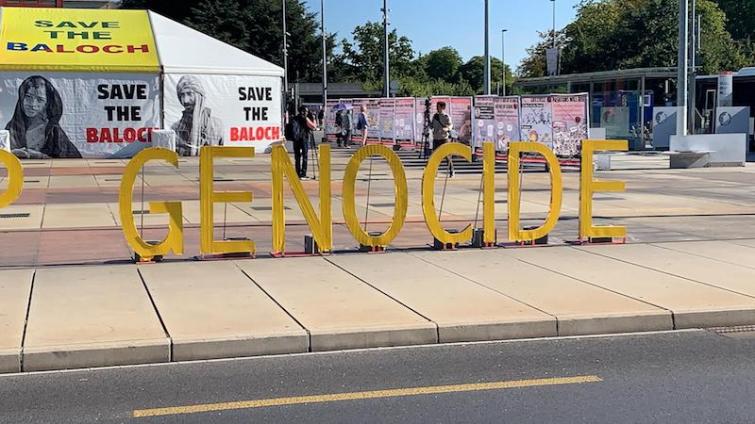
UN Human Rights Commission: Balochistan and Pashtun activists organize protests against Pakistan in Geneva
Geneva: At a time when Pakistan is taking the Kashmir issue to international fora against India's move to scrap Article 370 which had granted special status to Jammu and Kashmir, Balochistan, Pashtun and Sindh leaders have organized protests in Geneva to highlight the continuing atrocities on Baloch people by the Pakistani authority in their region.
The Save the Baloch movement recently organised a demonstration at the Broken Chair monument outside the United Nations offices in Geneva to create awareness of the atrocities the Baloch have historically faced and continue to suffer at the hands of the Pakistani government.
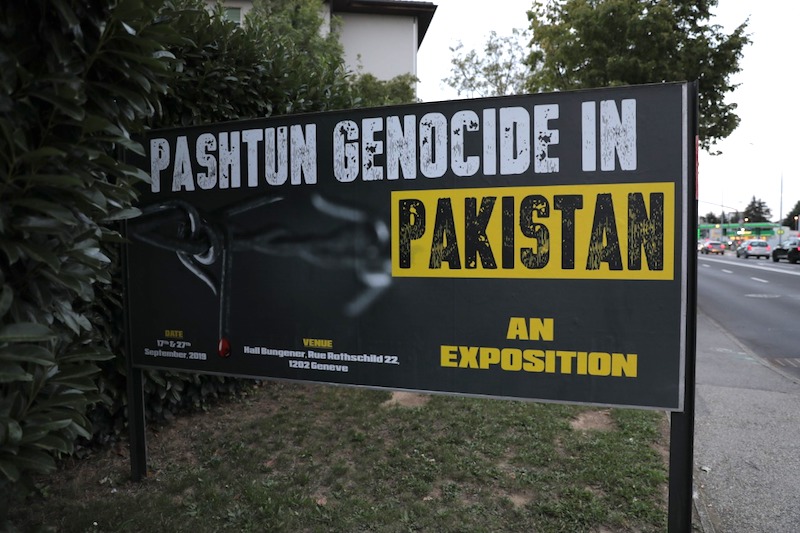
The 42nd session of the UN Human Rights Council is currently underway in Geneva, and posters and banners highlighting the human rights transgressions of Pakistan in Balochistan and Khyber Pakhtunkhwa popped up outside the entrance to the UN building.
The “#PakistanStopGenocide” campaign, a movement created by the Balochis seeks to rouse International support for the Baloch as they remain sandwiched in the middle of a Pakistani-sanctioned genocide. Extra-judicial killings, torture, and forced disappearances of rights activists.
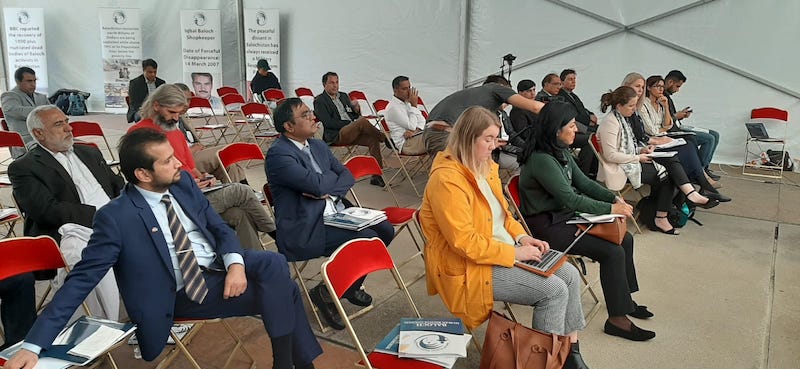
Billboards across Geneva also call for attention to Pakistan’s Cultural Genocide of the Pashtun People, who are historically known as ethnic Afghans or Pathans.
A number of billboards around Geneva now highlight an upcoming exposition on the genocide of the Pashtun people in Pakistan. The exposition, which will be held on the 17th and 27th of September at Geneva’s Hall Bungener, is part of a movement to elevate the voices of Pashtun people.
Specifically, Pashtuns are urging the UN to take action against Pakistan to stop the extermination of their people. Pashtuns current face a cultural annihilation complete with systematic violence, mistreatment, and intimidation at the hands of Pakistani-affiliated forces.

Though they have suffered injustice much longer, ten years ago extensive Pakistani military operations were conducted in the region. These heavy-handed military programmes wrought havoc on individual households and entire communities of Pashtun people.
Hundreds of civilians have been assassinated or forcibly disappeared. Villages have been completely levelled to the ground. Forced either to relegate themselves to such atrocious conditions or abandon their homes, many have chosen to leave. Flocking to neighbouring cities in mass numbers, the displaced Pashtuns are stereotyped as terrorists when they attempt to settle elsewhere.
At the present moment extrajudicial executions are on the rise; the number of deaths and missing persons has skyrocketed. Neither the state nor external authorities and organisations have made a point to protest these blatant human rights abuses at the international level.
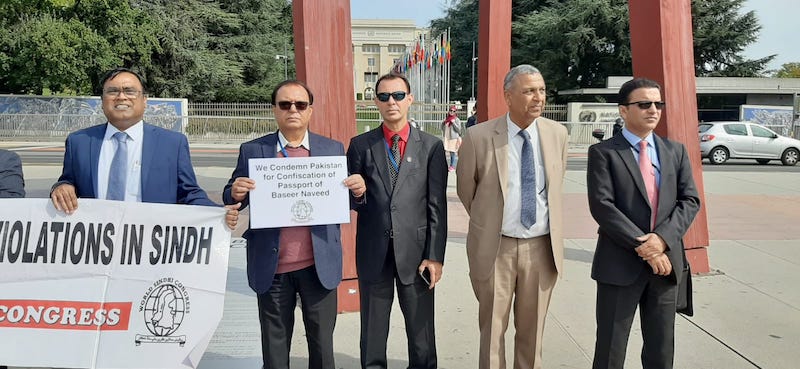
Everyone has the right to life and security—this principle is the bedrock to all of the UN’s human rights initiatives to date. Until and unless the UN takes clear and definitive action against the Pakistani government, the Pashtun people will continue to suffer under Islamabad’s brutal discriminatory agenda.
The UN and the rest of the international community must utilise its diplomatic resources to finally end the genocide of the Pashtun people once and for all.
Balochistan has historically contained swathes of mineral-rich land where oil, gas, gold, and copper have all been found.
The government of Pakistan has exploited this wealth of natural resources, directly violating the Pakistani constitution and denying the Baloch their most basic rights. Islamabad has illegally hoarded the profits from natural gas and hydroelectric power facilities instead of redirecting the net funds to the people of Baloch.
Pakistan has also restricted phone and internet access in Balochistan and threatened, kidnapped, or killed reporters who share the truth of what is happening to the Baloch. Alleging so-called “national security” concerns, Pakistan has barred international NGOs and rights groups from entering Balochistan and has repressed all forms of political activism that oppose the Pakistani government’s agenda.
As a result, the fullness and vibrancy of Baloch culture has been completely and wholly suppressed. Balochistan is reportedly the least-educated province in all of Pakistan with a low literacy rate.
Only one third of children are able to safely access schools; when they are able to get to school, their educational experience suffers as teachers in the region lack appropriate funds for providing sufficient materials and do not have access to educational resources. Employment opportunities for all people are strictly regulated based on political and cultural affinities.
At home, the majority of households do not have access to clean drinking water. There is also widespread internal displacement due to decades of conflict. Family members and loved ones are still forcibly disappeared at the hands of the Pakistani state, but Pakistan refuses to acknowledge any role in the kidnappings.
UN intervention is critical, and local NGOs and civil society organisations like the Save the Baloch movement must be included in the negotiations. One thing is certain: without pressure from the UN and other powerful international institutions, the Baloch will never receive the peace and justice to which they have a right.
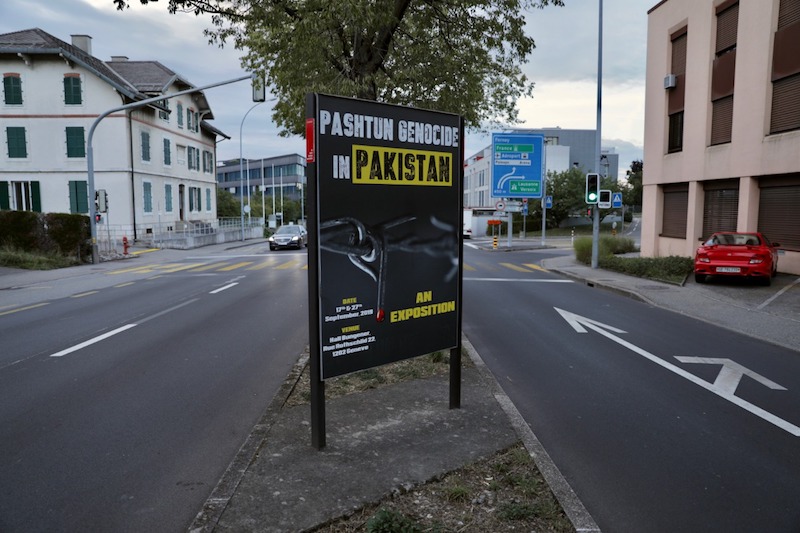
Support Our Journalism
We cannot do without you.. your contribution supports unbiased journalism
IBNS is not driven by any ism- not wokeism, not racism, not skewed secularism, not hyper right-wing or left liberal ideals, nor by any hardline religious beliefs or hyper nationalism. We want to serve you good old objective news, as they are. We do not judge or preach. We let people decide for themselves. We only try to present factual and well-sourced news.







